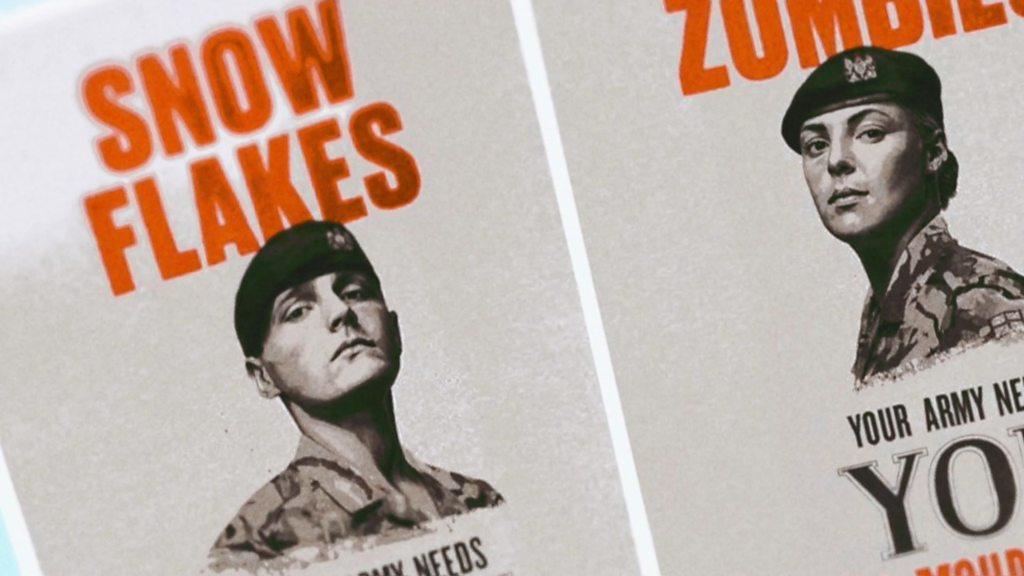New troops 'not getting help for mental health'
- Published
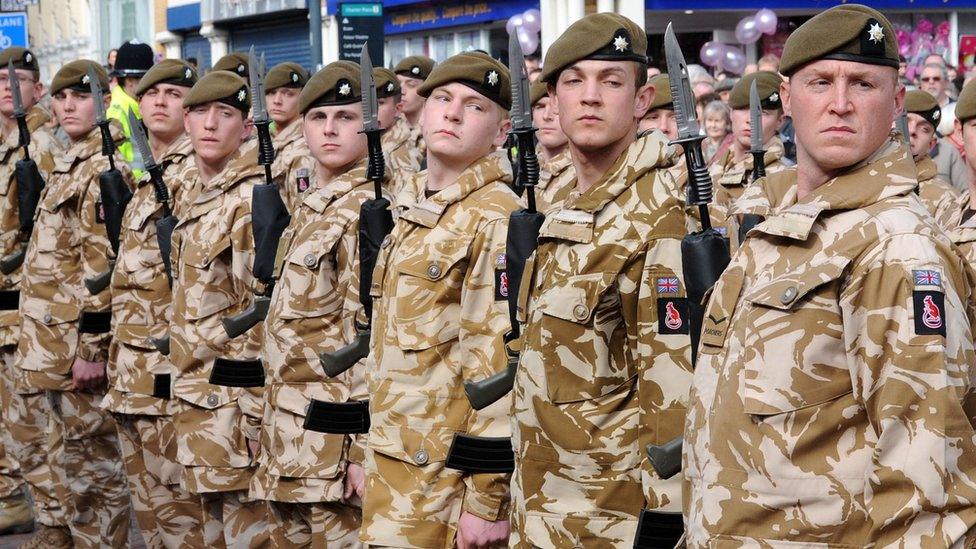
The armed forces charity, Ssafa says some young recruits aren't getting the help they need for their mental health.
It says, in the first half of the year it received almost 15,000 calls and emails to its forces helpline - but only 8% were from people under 30.
"They don't seem to be able to come forward and talk about their problems," says Bill Grant, Forcesline manager.
It's now launching a web chat for people who are reluctant to talk on the phone.
"It's clear a large percentage of people prefer to use web chat, SMS and other messaging services in order to talk about their problems," Bill tells Radio 1 Newsbeat.
'I was really struggling'
Captain James 'Harry' Grantham is in the Royal Horse Artillery says he struggled with his mental health after going through a divorce.
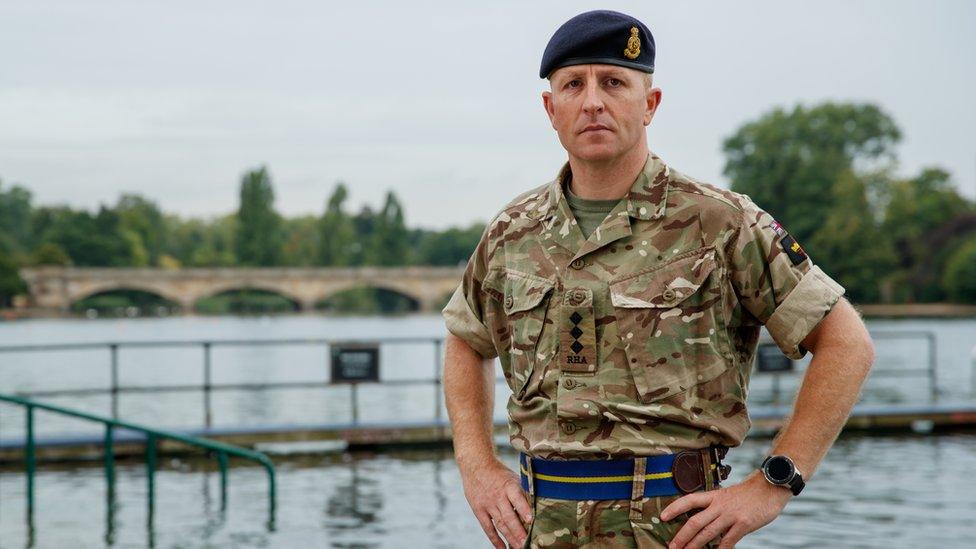
Captain James 'Harry' Grantham joined the army when he was 20
"As a typical guy I kept all the pressures to myself, thinking 'I can cope with the pressure'."
Captain Grantham says he got help after opening up to a colleague.
"He noticed a change in me and I opened up to him and the pressure got released."
Harry says he then saw a counsellor and says it was "the best thing he ever did".
'Young soldiers need to talk'
His advice for younger recruits is: get help - and he says when you first join the army it can be a massive change.
"Young soldiers need to talk, there does not need to be that stigma any more of this brave face, this brave image."
He admits that life in the army does take some getting used to.
"They're coming into an organisation which is very different from what it's like in civvy street.
"There is added pressure with younger soldiers - I joined when I was 20 and I was a bit more mature and found it easier to adapt."
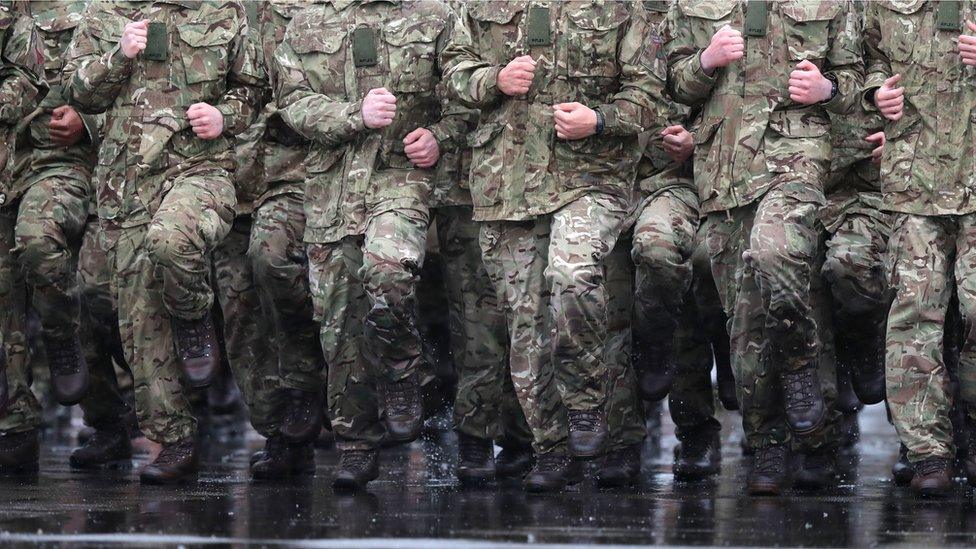
30% of army intakes last year were 16 and 17 year olds
Bill says they get a lot of calls about debt, depression and substance abuse and is usually connected to mental health.
He says if people don't get the help they need it can lead to problems.
"Sadly, we do get calls from people who feel that ending their own lives is a way out or people who self harm, or have alcohol and drug problems.
"These are coping mechanisms people use because they feel they can't get the help they need."
An MOD spokesperson said: "We encourage everyone, whatever age they may be, to come forward and seek mental health support if they are struggling.
"We have stepped up our funding for military mental services to over £22m a year and run a confidential, 24/7 mental health hotline for anyone in need of support."


Follow Newsbeat on Instagram, external, Facebook, external, Twitter, external and YouTube, external.
Listen to Newsbeat live at 12:45 and 17:45 weekdays - or listen back here.
Update 6 September 2019: This article has been amended to reflect duty of care concerns raised by the armed forces charity, Ssafa
- Published16 August 2019
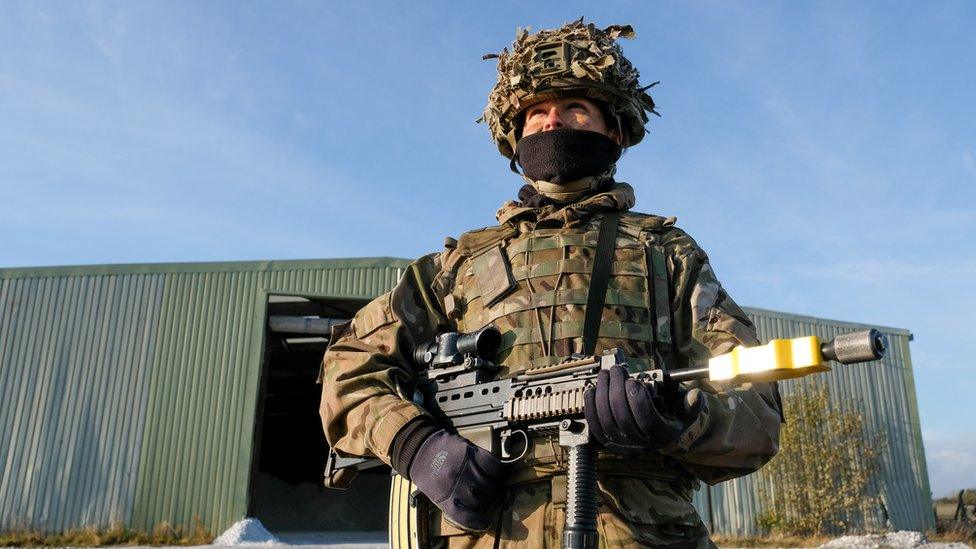
- Published3 January 2019
